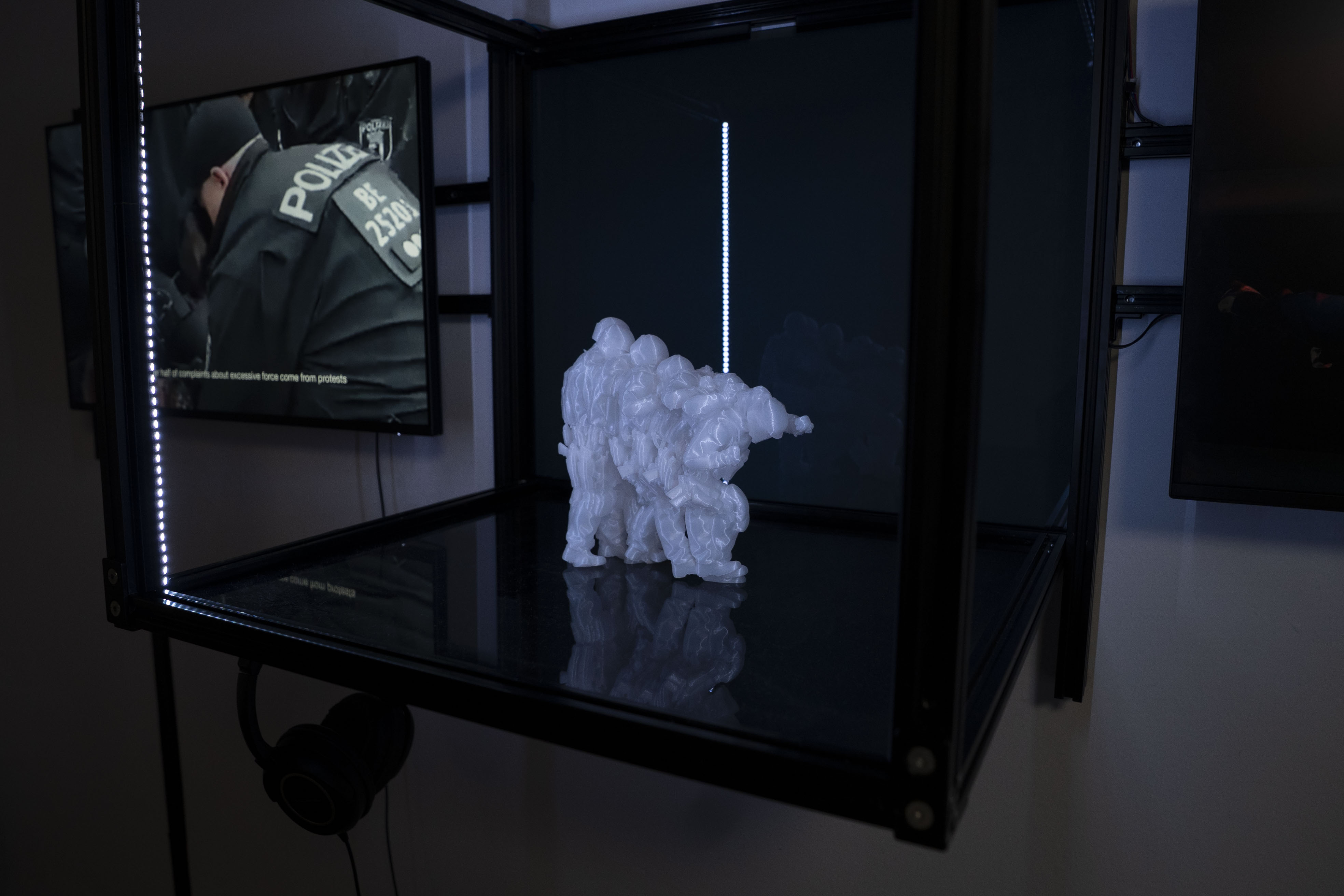
Bring on the Chaos! at Ars Electronica Campus Exhibition 2025
When
Oct 3, 2025 12:00
Sep 7, 2025
-
Where
POSTCITY
arrow_outward
The Campus Exhibition 2025 responded to this year’s Ars Electronica theme PANIC – yes/no by showcasing contributions from 37 universities worldwide and 14 departments of the University of Arts Linz.
The exhibition reflected on the role of creative education in times of instability and rapid transformation.
Instead of providing fixed answers, many projects focused on cultivating resilience and navigating uncertainty. Art here became a form of adaptive intelligence, a rehearsal space for unknown futures.
The Campus Exhibition was not just a showcase, but a living laboratory for experimentation, artistic research, and cultural reflection.
Within this framework, our exhibition “Bring on the Chaos!” was conceived by students of the Master’s program Design & Computation (UdK Berlin + TU Berlin).
Six Projects explored chaos as a possible response to panic. The interdisciplinary works investigated hidden patterns, future myths, cultural models, policing tactics, soft technologies and quantum music. At the intersection of art, science, society, and technology, the projects highlighted how diverse academic and cultural backgrounds can generate poetic and epistemic strategies for futures worth living.
Participants:
Mika Zoé Rosenberg
Otto Ostermann
The Campus Exhibition 2025 responded to this year’s Ars Electronica theme PANIC – yes/no by showcasing contributions from 37 universities worldwide and 14 departments of the University of Arts Linz.
The exhibition reflected on the role of creative education in times of instability and rapid transformation.
Instead of providing fixed answers, many projects focused on cultivating resilience and navigating uncertainty. Art here became a form of adaptive intelligence, a rehearsal space for unknown futures.
The Campus Exhibition was not just a showcase, but a living laboratory for experimentation, artistic research, and cultural reflection.
Within this framework, our exhibition “Bring on the Chaos!” was conceived by students of the Master’s program Design & Computation (UdK Berlin + TU Berlin).
Six Projects explored chaos as a possible response to panic. The interdisciplinary works investigated hidden patterns, future myths, cultural models, policing tactics, soft technologies and quantum music. At the intersection of art, science, society, and technology, the projects highlighted how diverse academic and cultural backgrounds can generate poetic and epistemic strategies for futures worth living.
Participants:
Mika Zoé Rosenberg
Otto Ostermann